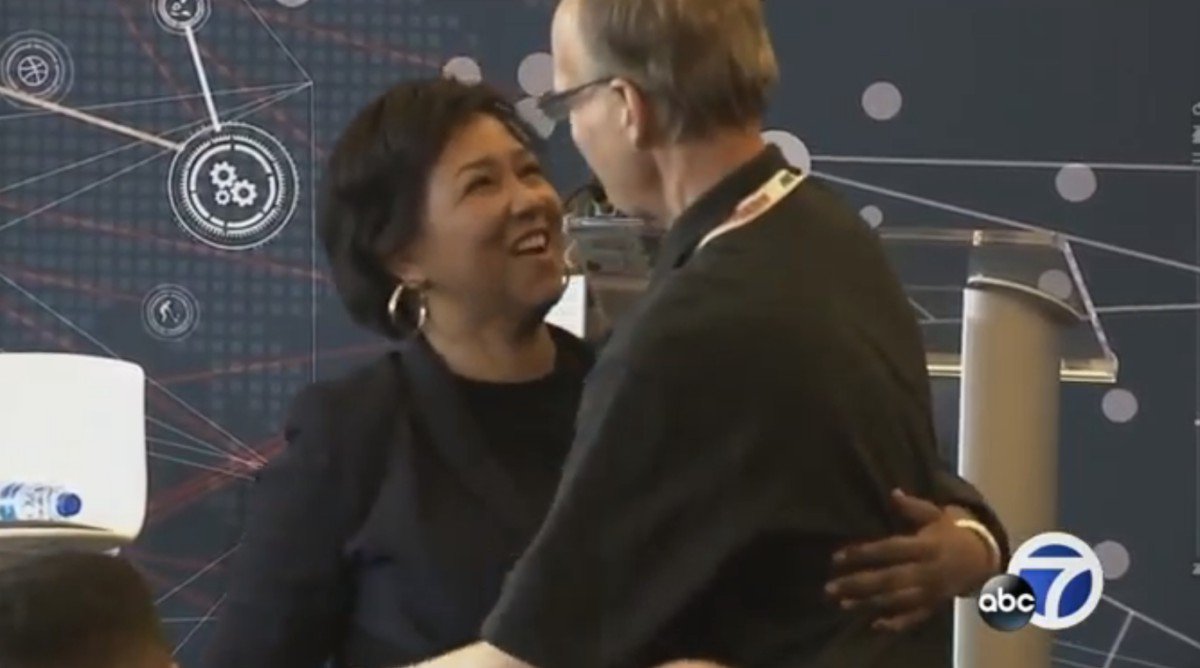[ad_1]
Most people came name a historical figure who they’ve read about who changed their life, but it’s not every day that you can say a historical figure saved your life.
Dr. Mae Jemison, the first Black woman in space got a chance to have an emotional reunion with a man whose life she saved back during the 1980s in Sierra Leone.
Jemison who was the keynote speaker at the “Beyond Innovation Conference” recalled a story about a time when she served as a young doctor in the Peace Corps in the war-ravaged country and saved Dan Anisman, who got so sick that she ordered that he be flown to a German hospital for care, reports ABC7 in San Francisco.
Jemison ultimately saved Anisman’s life because other doctors thought the man simply had a bad case of malaria, but Jemison knew better.
“She put the cocktails together and this and that because Sierra Leone, they didn’t have everything and the electricity was bad. She knew I was not in good condition,” Anisman recalled.
“You have to learn how to do your job and you take responsibility for what you’re supposed to do. You can’t let other people push you around,” Jemison said.
Jemison didn’t allow anyone to second guess her and because of that Anisman survived. He’s now a volunteer coach for the Special Olympics in Oakland and he was thrilled with reuniting with Jemison.
READ MORE: Fourth grader says teacher cruelly labelled him with a gruesome, short future
Jemison later made history as the first Black female astronaut in 1992 flying aboard the space shuttle Endeavour.
During the event to promote the use of STEM in sports, Jemison told the crowd to pursue their dreams and boldly go where their heart desires.
“What does it matter if you have a place at the table and you act just like everyone else and you mind your table manners,” she said.
Jemison is currently featured along with actor and rapper Will Smith on the National Geographic series “One Strange Rock.”
READ MORE: African Americans continue to impact space exploration
[ad_2]
Source link

